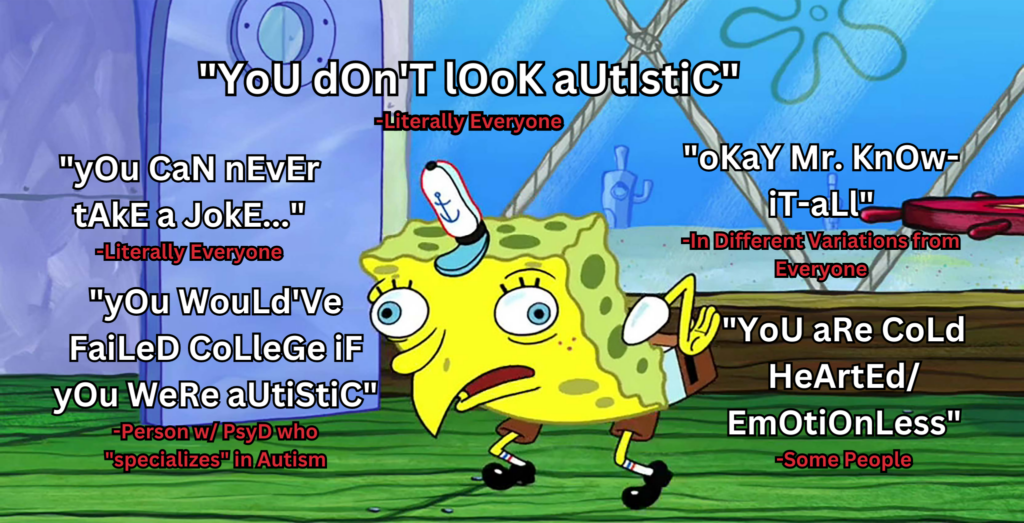24/7 Hotlines: Call or text 988 or text 741741
April 2nd is World Autism Awareness Day and it’s Autism Awareness Month! World Autism Awareness Day and Autism Awareness month draws attention to the need for growing innovative programs that are designed to support those with autism. I feel like there’s a need for supporting people more than just supporting programs. Reason being, in order to make autistic people feel seen, heard and understood, we must start with people. And as a fellow autistic person, I want to share my experiences and give insight on how people can be more supportive.
My biggest struggle as an autistic high functioning/masking adult is that people don’t see me as an autistic individual. And that’s a problem! It does get frustrating for me. Mainly because my actions are typically taken in another way and/or I get discredited for being autistic. Which invalidates how I feel at times, and even my needs. So being cognizant over labeling someone as high functioning is important!
I do want to clarify that being autistic doesn’t mean that we are incapable. There were times where I was treated and talked to like I was a child because I made people aware that I was autistic. I was extremely aware that people who do that typically don’t fully understand autism and aren’t comfortable. However, a good portion of this treatment came from licensed clinicians, people with a PsyD, and/or PhD in psychology who don’t fully understand how to navigate autism.

These are just a few things I’ve heard either my entire life or from people in general. We should spend time to #StopJudging, #StopTheStigma, and #BeMoreAware.
Hearing some of these things makes me feel misunderstood and frustrated. However, hearing things about not looking autistic makes me question someone’s entire thought process. Especially the comment about my ability to pass my college courses. Like, where are people getting their information from? And it’s all about stigmas!
To explain the “different variations” under the Mr. Know-It-All quote, people typically complain when I correct their harmful stigmas. I can say that I strongly dislike having to educate people on their ignorance and inaccurate perceptions. Mainly because I do it so often that people either ignore me or that I hear people complain about how I’m too uptight, I always correct them or I get called a Mr. Know-It-All. If you don’t want to be corrected, be more aware of your harmful language and/or the harmful stigmas that you are perpetuating. Fix how you are talking.
This biggest “rule” of support here is to believe a person when they say they are autistic even if they are a high functioning/masking adult. Here are additional ways you can support autistic individuals:
Reminder: Every autistic person isn’t the same! And, every autistic person experiences themselves differently. So please get to know someone first!
– Dez 🙂

© 2024 TurningPointCT.org. All Rights Reserved.
Your guide on autism awareness, written by an autistic person, is a valuable resource for promoting understanding and acceptance. By sharing your personal experiences and insights, you offer a unique perspective that helps debunk myths and misconceptions surrounding autism. This guide serves as an important tool for educating others about the diverse experiences of autistic individuals and fostering a more inclusive society. Thank you for sharing this informative and enlightening resource that contributes to promoting autism awareness and acceptance. Well done on creating a guide that is both informative and empowering!
Hi! Thank you for your comment 🙂 I greatly appreciate all that you have written! I hope that this gets to more people. It’s always important to self improve and educate to create a better society!